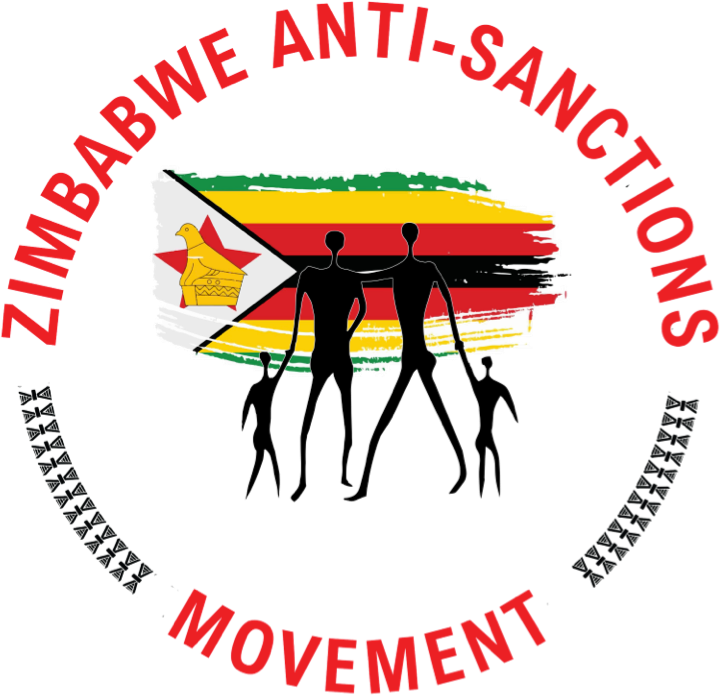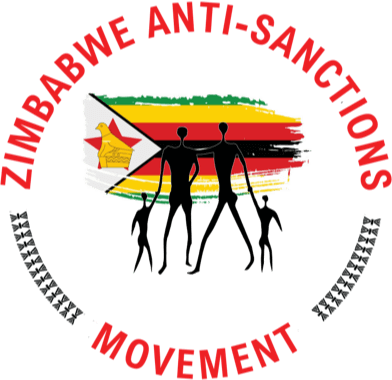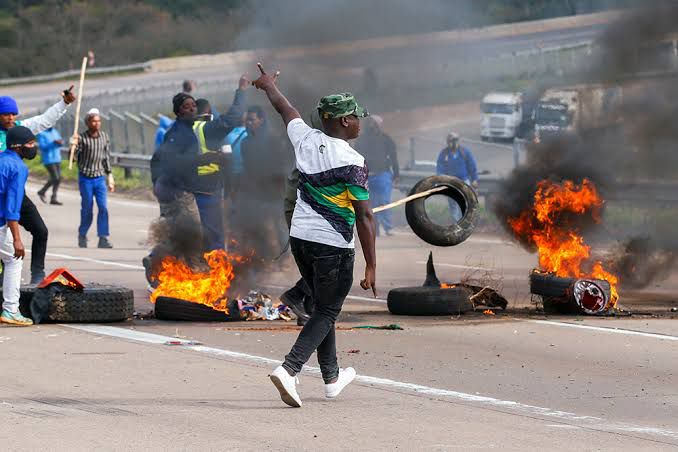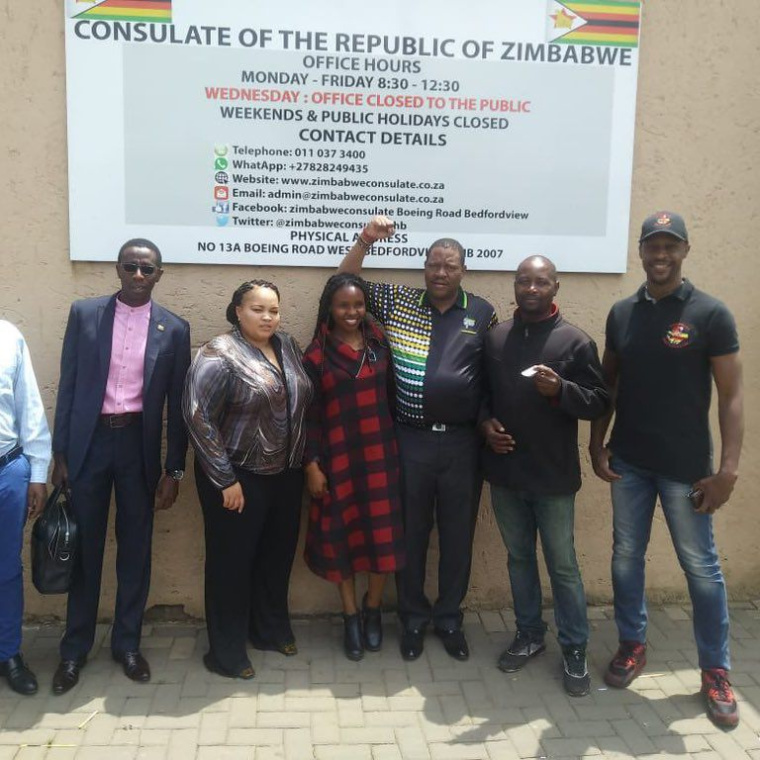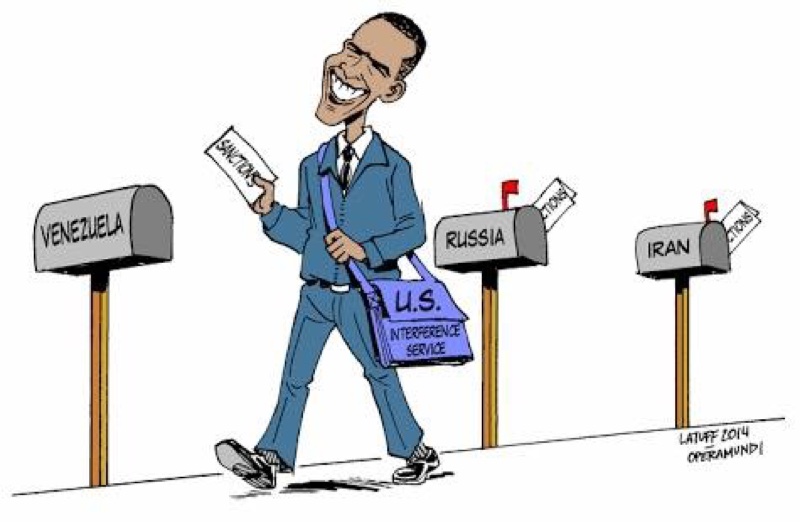
One of the biggest challenges we have in Zimbabwe and most of Africa is most Africans have no clue that their continent is under siege in a geopolitical fight for resources.
Another problem is as a continent we are naive to the extent that we lack the understanding of the propensity of capitalist [western] nations to fight for resources. This is despite history empirically proving that most of them have used any means from racial subjugation, propaganda, economic sanctions, subterfuge, genocide, biological and direct warfare to control other nation’s resources to enrich themselves by evading fair value exchange.
US Sanction And War Duo
We saw this not too long ago when the US imposed sanctions on Afghanistan, Iraq, Iran, Syria and Libya. Eventually escalating most of these sanctions into wars that overthrew the leadership and took over the resources.
This was not done only to maintain the petrol dollar or give US companies profitable contracts to rebuild those nations on the vast bounty of oil resources.
It was mainly for US companies to control Iraqi and Libyan oil which catapulted the US to be one of the top five biggest oil producers in the world within the last decade.
Oil Quantitative Easing
These spoils of war have allowed the US to give Americans a further quantitative easing with discounted oil, while manipulating global oil prices to economically weaken geopolitical oil rich foes like Russia, Venezuela, Nigeria and Iran.
In the same wave we have heard Pentagon hawks punting the need for the US government to put a viceroy in Afghanistan to oversea the exploitation of an estimated $3tril of Afghani resources.
In this manifest destiny, the US dollar has seen a resurgence and significant strengthening against other major currencies in the past decade, quelling talk of the long anticipated US debt default.
Zimbabwe Sanctions
The same manifest destiny is playing itself out in Zimbabwe as we speak. The small nation is under a sophisticated economic war that is slowly weakening the nation, leaving it vulnerable to opportunistic biological attacks and epidemics that are eroding national cohesion and confidence.
The US government is silently destroying the economic, cultural and moral fabric of Zimbabwe with persistent, vague, board stroke sanctions and propaganda that most Zimbabweans are too unenlightened to see through.
Wolf In Sheep’s Clothing
US sanction propaganda has deliberately made information on the nature of its sanctions on Zimbabwe very difficult to understand, to hide their imperial intent.
In fact, efforts have been made by the US government to misrepresent two sets of sanctions as one set of embargoes against individuals of the Zanu PF government. Meanwhile in reality both sets of sanctions are strategically directed at the nation’s economic heart and poor Zimbabwean citizens.
When you consider this with the fact that the Zimbabwe government has never been capable of winning the trust and hearts of its citizens through a shared national vision. The result is a nation being broken apart in a covert operation that is slowly turning citizens against their government.
Lack Of Journalists In Zimbabwe
Compounding the whole affair is the fact that Zimbabwe lacks a credible and competent nationalist media that can be a first line of defense against foreign propaganda attacks.
African journalists are oblivious of the concepts of national survival, national interest, patriotism and the importance of exposing the true nature of such attacks as these US sanctions to rally citizens to the defense of their ailing nation.
Zimbabwe Is Under Attack
The reality is Zimbabwe is under a total trade and investment embargo by the US government and its European allies. For those who understand the distinction between sanctions and embargoes you will realize that what is upon Zimbabwe is economic warfare.
This is evidenced by the fact that the 2003 Executive Order 13288 sanctions by George Bush were evoked through the International Emergency Economic Powers Act [IEEPA] and National Emergency Act [NEA] using war and defense provisions.
Through it Zimbabwe, in a succession of two amendments [EO13391 & EO13469] was specified as an unusual and extraordinary threat to US interests, national security and or economic interests. For this reason the US president basically imposed war on Zimbabwe through IEEPA and NEA.
US Siege Of Zimbabwe
To effect these war and defense measures, the US government has established expressed instruments and augmented them with presidential discretion to investigate, permit, license, limit, block, confiscate, arrest and prohibit [by mere instruction] any payments, transfers, financial transactions, trade, alienation of property and business transactions between US nationals, banks, businesses, global businesses and Zimbabwe, its institutions, persons and businesses.
In effect Zimbabwe is being engaged by the same broad and flexible national emergency measures as those applied to any nation at war with the US and those used previously to vanquish nations like Iraq, Libya and Afghanistan.
What is ironic is within the period of these Zimbabwean sanctions. The US has gone on to build their biggest embassy on the continent at a cost of $200mil, in the besieged nation. A move that signifies conquest or total infiltration of the Zimbabwean citadel.
Sanctions Not Global Community Mandate
Were it not for the Veto by the Russian and Chinese governments in the UN Security Council. US Zimbabwe sanctions would probably have been UN sanctions. Albeit, right now Zimbabwean sanctions are a frontal attack on Zimbabwe’s decolonization agenda, imposed by the same colonial powers that declined to ratify the UN Decolonization Resolutions of 1960.
It’s total economic warfare on an unruly colony disguised as sanctions on Zanu Pf politicians, government companies and their allies.
ZDERA 2003
So what are the true nature of Zimbabwe sanctions?
Zimbabwe has two sets of sanctions in effect against it. The first were instituted in 2001 as an act of Congress after Zimbabwe’s land reform. These are the infamous S494 ZDERA 2001 sanctions which were just extended in August 2018.
These sanctions were imposed on Zimbabwe as a direct response to the land reform and Zimbabwe’s participation in the Second Congo War in defense of Laurent Kabila against western sponsored Rwandan and Ugandan rebels trying to overthrow him for control of Congolese resources.
Reasons For ZDERA
The US, her EU allies, Canada and Australia have attempted to disguise these sanctions as being for election violations in 2000 parliamentary elections. However, the original sanctions policy statement itself does not highlight such reasons as the motivation for the sanctions.
The policy statement clearly states that sanctions were to facilitate democratic change in Zimbabwe [regime change] and for the above reasons of land and the fiscal indiscipline of Zimbabwe’s participation in the Congolese war that led to the Sun City Accord.
Noteworthy is also that at the time of those elections Common Wealth election observers judged those elections (in which MDC got 56 to Zanu’s 61 seats) to be the biggest step forward for Zimbabwean democracy.
The real motive of the sanctions is illustrated by the US, EU, Canada and Australia now threatening South Africa with similar interventions if she attempts to expropriate land without compensation.
How Do These Sanctions Work
Contrary to the claim that they are targeted at politicians and their companies. The ZDERA sanctions are targeted squarely at disabling the Zimbabwean financial system, by using US government directors in multilateral lending institutions to block any debt cancellation, extension of loans to Zimbabwe and or the continuation of any developmental project loans that were signed in Zimbabwe’s favor previously.
The impact of these measures is particularly insidious when you consider that:Zimbabwe went into independence with a $800mil [$2.6bil in today’s terms] foreign debt inherited from the Rhodesian government’s arms procurement to prevent the liberation of Zimbabwe.
- Zimbabwe used its national reserves to pay white farmers in foreign currency for the return of illegally occupied [colonized] land from occupiers who never paid reparations for colonialism.
- This debt was then coupled with the debt Zimbabwe had to take to develop the derelict education system, healthcare, housing and infrastructure neglected by the Rhodesian and British governments in contravention of provisions of ICESCR [Management of non-self determining peoples] and the preceding League of Nations Chapter 11 provisions.
- All this culminated in ESAP which decimated the Zimbabwean economy.
- The above were compelling mitigating factors for Zimbabwe to seek debt relief and debt cancellation, which are now effectively blocked by the US gvt through these sanctions.
ZDERA Aftermath
The effect of this is Zimbabwe is struggling to meet up with its balance of payments, bilateral debt repayments with other nations while failing to attract investment to develop the nation.
This has seen the isolation of the Zimbabwean banking system, loss of investment and slowing economic growth in contrast with the UN Human Rights Charter economic development aims.
Nevertheless, resource rich nations like Zimbabwe can survive and develop without borrowing from Multi-lateral lending agencies as long as they are permitted to trade their resources freely on the international market.
It is to nullify this capacity to trade that the US government after two years of instituting ZDERA sanctions, placed a second set of sanctions through George Bush’s Executive powers and privileges.
2003 Executive Order Sanctions 13288
These are the sanctions that put the nail in the coffin of Zimbabwe’s economy despite them being deceptively referred to as the targeted sanctions against individuals.
The problem with EO13288 as the Executive Order sanctions are called is a vague outline of the sanctions was expressed as targeting certain [144] Zimbabwean politicians, their friends, close families and companies assisting them in undermining democracy in Zimbabwe.
However, subsequent 2005, 2008 amendments EO13391 and EO13469 extended the wording to say that the Zimbabwean government had undermined democracy in Zimbabwe which now put it and a number of it’s institutions as SDNs [Specially Designated Nationals] or targets of the sanctions.
With this addition of the Zimbabwe government, it meant that sanctions were now targeting both [Zanu PF] national government, [MDC] local governments and government departments that serve poor destitute Zimbabweans such as health, social welfare, rural development, women and children’s ministries.
This illustrates how these sanctions affect the most vulnerable citizens of Zimbabwe and not the politicians contravening human rights as purported. The result has been a human rights crisis among the poorest Zimbabweans who can’t access proper healthcare and economic development in line with the millennium development goals.
Mechanisms Of EO13288 & It Amendment EO13469
With this the powers to investigate, arrest, limit, license, confiscate, block or prohibit US citizens, businesses, banks and even global entities [hoping to trade with US companies] from trading with Zimbabwe was left to the discretion of the US President who declared the national emergency on Zimbabwe.
Consequences Of EO13288 & amendments
What this essentially means is the US government is at war with Zimbabwe and the US President is the only one with the discretion to legitimize, criminalize and penalize money transfers, payments, sales, property and or trade between global businesses and Zimbabwe by mere instruction or “other”[unspecified means] in the absence of a statutory instrument.
The net effect of that is doing business in Zimbabwe becomes a minefield of risk where one could unknowingly contravene US provisions, find themselves imprisoned (as recently happened to the Hauwai executive in Canada over Iran) or added onto the list as aiders of the Zimbabwe government or contraveners of the sanctions. This pushes most businesses and investors to manage risk by shying away from trading with and investing in Zimbabwe.
Economic Stagnation
As a result Zimbabwe is starved of trade and investment, enabling it to borrow money only where the US treasury approves as it did with the license given to Agribank. This makes capital costly and potentially captive for Zimbabwe.
Additionally it has driven underdevelopment, poverty and uncompetitiveness of the Zimbabwean economy. Basically Zimbabwe is a small nation upon which the whole of Europe and the world’s super power have imposed economic warfare because she dared to decolonize. It’s a miracle that the economy has continued to function.
Zimbabwe is under imperial hegemony while its citizens and the world look on and think the country deserves what it’s getting because it violated human rights.
- Human Rights ViolationsHowever, how are human rights violations by specific government officials stopped by imputing sanctions on poor Zimbabwean citizens who are suffering under the burden of sanctions?
- How are human rights violations visited on Zimbabwean people by specific politicians tantamount to Zimbabwe being an unusual and extraordinary threat on the United States?
- Why were human rights violations never in the policy statement of the initial ZDERA 2001 sanctions?
- And why are nations that are really responsible for serious human rights abuses like Israel, Rwanda, Kenya, Uganda, Saudi Arabia, Egypt and the US itself, which has presided over the butchering of hundreds of thousands of Iraqies and Libyans for oil never subject to the same precedence?
The fact is the provisions of the IEEPA and NEA instruments imply that US interests are threatened unusually and extraordinarily by previously colonized nations seeking to decolonize themselves and empower their citizens. That is akin to fascist hegemony in no uncertain terms and every African must take heed because more African nations are likely to fall under the same axe for trying to empower their masses in future.
By Rutendo Bereza Matinyarare Marketing & Brand Strategist For Frontline Strat Marketing Consultancy.
